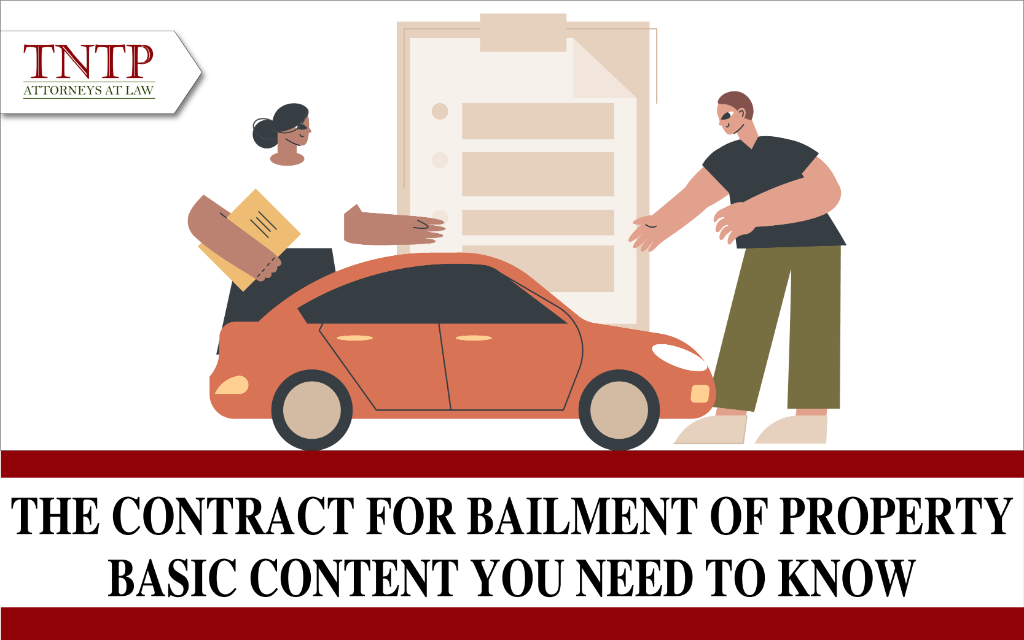The contract for bailment of property: Basic content You need to know

Contracts for bailment of property is a common type of civil contract whereby a bailee accepts the property of a bailor for safekeeping and must return to the bailor upon expiry of the duration of the contract, and the bailor must pay a fee to the bailee unless otherwise agreed by the parties. In the current economic context, this contract plays a crucial role in safekeeping and managing property, meanwhile generating economic benefits for the parties involved. In the following article, TNTP will provide readers with the basic terms and provisions of the contract for bailment of property.
I. Definition
Pursuant to Article 554 of the Civil Code 2015, the contract for bailment of property means an agreement between parties whereby a bailee accepts the property of a bailor for safekeeping and must return to the bailor upon expiry of the duration of the contract, and the bailor must pay a fee to the bailee, except where the bailment is free of charge.
Therefore, in the contract, the bailor transfers the property as well as the possession to the bailee for a specified period. The bailee receives and safeguards the property within the agreed-upon timeframe.
Upon the expiration of the bailment of property, the bailee returns the property in the same condition in which the bailee received it, and the bailor must pay a fee to the bailee for the bailment service. However, the parties may agree the bailment is free of charge. In this case, the bailee still should fulfil obligations similar to the case the fee is received.
II. Legal features of the contract for bailment of property
Firstly, the subject matter of the contract can be movable or immovable property, as long as the property is capable of being freely traded. For difficult-to-preserve or hazardous property, the bailor must package them carefully and in accordance with legal regulations, if any. The bailee must have the necessary facilities such as warehouses, yards, and fire-fighting equipment to ensure the safety of the property and to prevent potential risks.
Secondly, this contract is a type of bilateral contract. The bailor has the right to demand that the bailee safe keep the property and returns them upon the expiration of the contract or at the bailor’s request. The bailee is entitled to demand that the bailor retrieves the property when the contract expires and pays the agreed-upon fee.
Thirdly, this contract can be either compensatory or non-compensatory. If the bailor is required to pay a fee to the bailee, it is a compensatory contract. Conversely, if the bailee does not receive any remuneration from the bailor, it is a non-compensatory contract.
Fourthly, this contract can be expressed verbally, in writing, or through specific acts. In reality, for contracts of small value, the parties often select the form of verbal agreements. Typically, the bailee can hand over a ticket as evidence of the contract’s formation. It is important to note that the ticket serves as proof of the existence of the contract but is not a contract itself.
Above is the content of the article “The contract for bailment of property: Basic content You need to know”. Hope the above sharing is useful for those who are interested in this issue.
Best regards,


